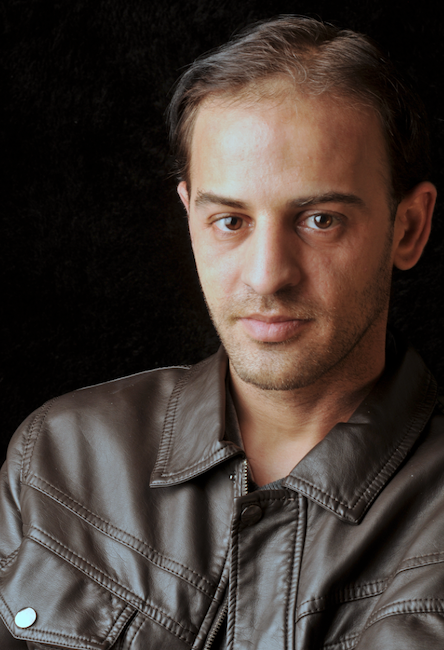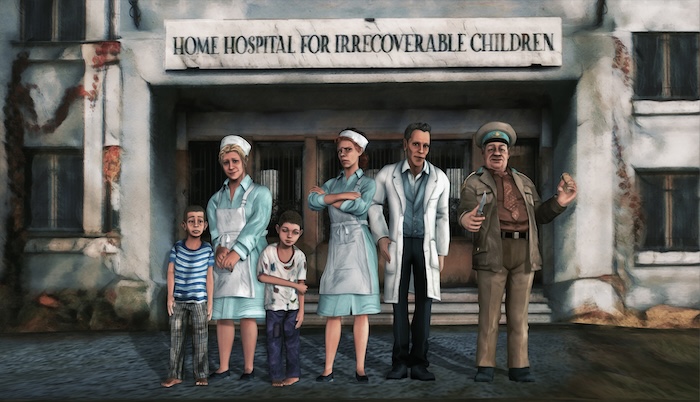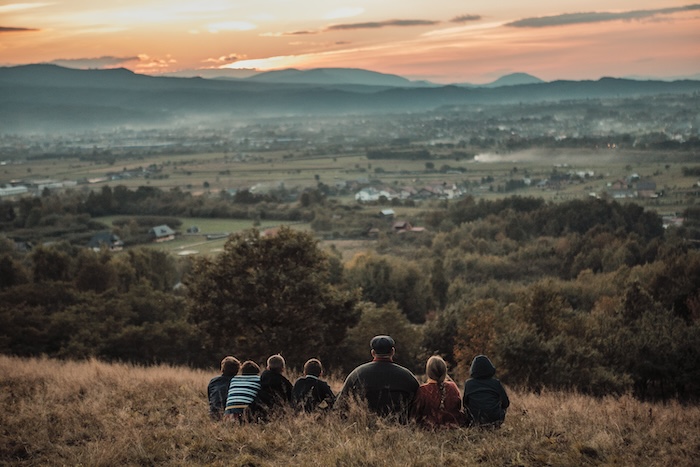From hopelessness to hope: A Romanian orphanage survivor’s path to healing in IZIDOR, a short film



“The film is about an eight-year-old boy who actually gets to go home for the first time in his life. Now remember, he has never stepped out of the building or gone outside to feel the grass or to even feel what the outside concrete felt like. That boy was me.” - Izidor Ruckel.

Imagine never stepping outside until you are eight years old. For Izidor Ruckel, this was the grim reality until a kind nurse, Maria Onisa, opened a door to a world he could never have imagined.
Born in the shadows of communist Romania, Izidor was one of thousands of children locked away in asylums, their lives devoid of hope or human connection. These institutions, part of a system that systematically ignored the rights of children, became the backdrop for Izidor's first eight years, which were marked by isolation and cruelty.
“The Home Hospital for Children was meant to be a place to be able to care for special needs or mentally challenged children, a hospital that could provide better care and a way for children to still be able to have a normal life to the best of their ability. But it was far from that. The abuse, the neglect, revealed that the workers had worked there too long and they were understaffed. There were days that we wondered if we would even survive, considering how many kids I had seen die in that asylum with my own eyes,” Izidor Ruckel told Romania-insider.com.
The short film’s central moment - when Izidor first steps outside - is symbolic not only for him, but for the countless others who endured similar fates.
Izidor shares, “When I left the asylum, it was a great moment. I was ready to leave that place. I was excited, but at the same time, I took a good look at all the people and the institution itself. I knew that once I left that place, I would never come back. I would never be able to see all these people again and had no idea what my new life would be like. But please, do understand that life was starting to get better for us after communism ended.”
This powerful moment in the film marks the shift from a life of institutionalization to one of potential. The transition is brought to life with both animation and live action, helping to visually contrast Izidor’s harsh and suffocating world inside the asylum with the vibrant, life-affirming world beyond its walls.

Behind the camera is David Kabbe, a director who spent nearly 20 years producing projects across various mediums while also advocating for those without a voice. Thus, with such a background, he was expectedly drawn to the story of Izidor because of its emotional depth and the way it bridged personal experience with profound hope.
“In many ways, this story found me rather than the other way around. But within it, I discovered something deeply moving - the beauty that exists within pain and hopelessness,” he told Romania-insider.com. “What resonated with me most was the stark disparity and seeming hopelessness of Izidor’s world, yet the profound, complex hope that emerged from it.”
When asked about the challenges of working on such a delicate film, Kabbe acknowledged the technical difficulties of representing trauma visually without overwhelming the audience. “The reality of the situation was too visceral and gut-wrenching to show directly, so we turned to animation to soften the impact while still allowing the audience to connect emotionally.”
Filming in the very town where Izidor Ruckel’s life unfolded - Sighetu Marmatiei, Romania - lent an authenticity to the production. Kabbe spoke highly of the local community, the support of the mayor, and the unique challenges that arose while working in the region.
The decision to blend live-action with animation was an artistic one, allowing the filmmakers to approach the bleakness of the story with sensitivity.
“The truth of the story was too overwhelming - how could we recreate scenes like the 300+ starving, naked, deformed children in a concrete room? We had to find a creative solution. Even after seeing Schindler’s List and the real footage of the Holocaust and Ceausescu’s Romanian asylums, animation was the only way to approach this.”
While the film is rooted in Romania’s history, IZIDOR is ultimately about something universal: an adult confronting and healing from the trauma of their childhood, David Kabbe explains.
“It’s not just a Romanian or orphan story - it’s a story of personal growth and overcoming the past.”

Sarah Padbury brings to life the role of Maria Onisa - the nurse who, with a simple promise, changed Izidor Ruckel’s world.
Padbury, who also produced the short film, brought a deep personal connection to her role, as a mother of seven adopted children. She understood the struggles of children in need of love and care, having witnessed her own children’s challenges as they transitioned into a new life.
“My own experience watching my children adjust to a completely new environment in our home, just like Izidor did at Onisa’s, gave me a profound empathy for her efforts to offer Izidor something he had never known: the feeling of belonging in a family. She prepared her best meal for him, gathered her family to embrace him, and tucked him into a warm bed - all simple but powerful gestures of kind-heartedness. Yet, Onisa’s circumstances were complicated; she had no legal way to change Izidor’s situation, and taking him out in public was against the law. Still, she saw him as a valuable human being, worth the risk if it meant he could experience kindness and love - if only for a day,” Sarah Padbury told Romania-insider.com.
“Through playing Onisa, I hope to illuminate the depth of her compassion and the profound impact of small acts of love.”
Moreover, by sharing Maria Onisa’s testimony of courageous kindness, Padbury says she hopes to inspire others to “be like Onisa.”
Sarah holds a Bachelor of Arts in Theater, performed in community theater, and played a supporting lead role in the film Pamela’s Prayer (Dir. Dave Christiano). IZIDOR marks both her debut as a leading actor and her first venture as a producer.
Izidor Ruckel’s story is not only about the past but also about the ongoing struggle for the rights and dignity of vulnerable children. After his own adoption and relocation to the United States, Izidor faced the difficult challenge of learning what it meant to love and be loved. He struggled with attachment issues, as he had never experienced the kind of nurturing that children in families often take for granted.
“The most challenging thing was learning what love was, how to love. I was not used to living in a family environment, that’s for sure. Within the year of living with my adoptive family, I was ready to go back and live in the orphanage. My mind could only comprehend the orphanage life,” Ruckel says.
“I had attachment issues, as well. For example, there were “seven angels” (new nannies) who came to my asylum after communism ended when our director hired new workers. I attached immediately to them, and in a way, I loved them, not even knowing what love was. But in America, I could not comprehend it for quite some time. My adoptive parents were loving and patient with me and it took me decades to really be able to love them back.”
As an adult, he also tried returning to Romania for a while but finally ended back up in the US.
“In 2023, I sold everything I had and moved from Colorado to Romania, hoping to stay at least two years by working to support myself. I moved back to my home town, Sighetu Marmatiei, Romania. But I quickly found out that it is very hard to get a job in a small town due to discrimination regarding my disability. Not even my resume with 15 years of experience in restaurant management could get me a job. My resume was worthless, since they could not believe a disabled person would be able to work 40 hours or more because of the way I walk. I was very disappointed and angry. After five months of job hunting, I had no choice but to return to the US. I moved to Texas to be near my parents and found a job quickly as an assistant manager for Pizza Hut, where I work now,” he explains.
Izidor Ruckel’s own journey of healing and growth is reflected in the short film, and he hopes that his initiative will inspire people to advocate for the rights of children everywhere, particularly those with disabilities or those who are marginalized.
His work, both through his autobiography, short film, and media appearances, has brought attention to the need for reform in the systems that care for vulnerable children. And there’s more to come, as Izidor is also planning a limited series.
“I believe the short film is the key to finding partners for the limited series, which will go into more detail about my journey of healing,” he says.
***
IZIDOR is currently on the festival circuit and, according to the production team, it will also be available in different screening options in the future - online and offline. The best place to follow is on social media or sign up here.
Further details about Izidor Ruckel, the short film & limited series project, and more are available here.
Irina Marica, irina.marica@romania-insider.com
(Photos: courtesy of the IZIDOR team)